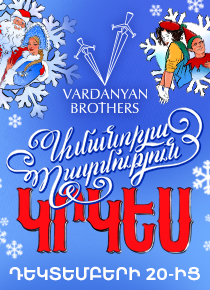Registration! Local Roots of Global Peace: International Conference on Global Security Studies
Sponsored by: Stonehill College (USA), Eurasia Partnership Foundation (Armenia) and Eurasia International University (Armenia)
The conference is free and open to public. The deadline for registration to attend the conference is June 20th.
Conference Background
The end of the Cold War gave rise to new forms of conflict as well as cooperation; to increasingly globalized crime as well as supranational responses to them. The steep decline in inter-state wars and parallel, yet more intermittent, reduction in civil wars, has been an encouraging trend worldwide. Yet, in more immediate terms, humanitarian emergencies such as the Syrian civil war are still raging, with the death toll conservatively estimated by the United Nations at around 250,000 in 2014 and refugee flows of over 4.5 million. With evidence of both terror from above and terror from below in Syria and Iraq, these crises have far reaching implications outside of the region, including global terrorism and the refugee crises within the EU. Outside of the Middle East, other areas with frozen conflicts, de facto states, and unstable peace are creating instability, in a world politically and militarily divided. In essence, the globalized world has become both more and less peaceful. On the one hand, there is a strong trend of cooperation between states, international organizations and civil society groups on various
global problems that defy purely state-centric responses. On the other hand, push-back from states on the grounds of state sovereignty and geo-politics has also been significant. Whether in post-war Central America or Western Balkans, political solutions to armed conflicts developed a tendency to mutate to terrorism, corruption and organized crime such as trafficking in humans, drugs and weapons.
The purpose of this conference is to make sense of these seemingly disparate and contradictory trends. How do we explain and study the global decline in armed conflicts and the increase of crime against the backdrop of a globalized world? Is the 21st century shaping up to be more or less peaceful than the century before? What has led to an increase in global crime? What is global security? What are the effects of “frozen conflicts” on global security? What is a global security order? Is there one? How does the global economy affect levels of global crime? How should we think about those consequences of globalization that are “lawful but awful”? The conference seeks to explore these questions in terms of their significance for Global Security Studies. Explaining how the experiences from developing countries confirm, conform and challenge traditional understandings of Global Security Studies is one of the overarching goals of the conference.
Preliminary Agenda
June 24th, 2016 9:00-10:00 AM Registration 10:00 AM Welcoming Remarks
Peter Ubertaccio, Associate Dean for Interdisciplinary Studies and Director of Martin Institute for Law and Society, Stonehill College, USA Anna Ohanyan, Chair, Department of Political Science and International Studies, Stonehill College, USA 10:20 AM Keynote Address
H.E. Mr. Piotr Antoni Świtalski, Ambassador, Head of Delegation of the European Union
to Armenia 10:45 AM – 12:15 PM - CONCURRENT SESSIONS 1 AND 2
Concurrent Session 1: Unresolved Conflicts and Global Security
Session Chair: Richard Giragosian, Regional Studies Center
Regulation of the “Frozen Conflicts” in the South Caucasus: Ways and Perspectives
Ani Hovasapyan, Moscow State Linguistic University, Russia De-Facto States in the CIS: Frozen Conflicts or Fragile Peace Grigor Grigoryan, Yerevan State University, Armenia
The Input-Output Legitimacy Dilemma for a Peacebuilding Organization in a “Frozen” conflict
Evelina Kurki, Umea University, Sweden Post-Conflict Stateness as a Global Security Threat: The Case of Non-Recognized States in PostSoviet Space
Violetta Petrosyan, Brusov State University
Discussant: Richard Giragosian, Regional Studies Center, Armenia
Concurrent Session 2: Crossing Borders and Global Security
Session Chair: Naira Sayakyan, Yerevan State University
Refugee Politics and Global Security
Alison Steferak, Stonehill College
The Syrian Refugee Crisis Narek Grigoryan, Yerevan State University
An Overview of Anti-Trafficking Action in Serbia Katherine Wahrer, Stonehill College
The Impact of Migration on Contemporary Armenian Economy
Olga Shakhsuvaryan, Armenian National Agrarian University
Exporting Freshwater from Armenia: Exploring Opportunities Due to Climate Change
Lianna Hovhannisyan, Armenian National Agrarian University
Discussant: Anna Ohanyan, Stonehill College, USA 12:15 PM Lunch 12:45 PM -1:30 PM Screening of “My Journey” by Gonca Sonmez-Poole, Turkish-Armenian Women’s
Association (USA) 1:30 PM-3:00 PM CONCURRENT SESSIONS 3 AND 4
Concurrent Session 3: (In)Security Actors and Institutions
Session Chair: Peter Ubertaccio, Stonehill College, USA
New Security Realities: Recalibrating the Role of Security Organizations in South Caucasus
Ani Grigoryan, National Academy of Sciences, Armenia Geopolitical Rivalry of External Players in Nagorno-Karabakh Lidiya Chikalova, OSCE Academy, Kyrgyzstan
Assessing the Impact of Armenian Peacebuilding Projects on Turkey-Armenia Relations
Helene Brehany, Stonehill College, USA Examining the Presence and Potential of Restorative Justice in Serbia in Cases of Discrimination Cameron Burke, Stonehill College, USA
Concurrent Session 4: Changing Security Settings
Session Chair: Vahram Ter-Matevosyan, Duke University (USA) and American University of Armenia
We and Others: The Model of Divisions of the World According to Islamic State
Naira Sahakyan, Yerevan State University, Armenia
The Concept of Political and Religious Imāmah (Leadership) of Islamic State (ISIS/ISIL)
Mariam Mkhitaryan, Yerevan State University, Armenia
The Influence of Mass Media and Propaganda: the Conflict in Eastern Ukraine
Ani Mkrtchyan, Brusov University
Russia as a Nation in Progress: Russia’s Engagements in Chechnya and Ukraine
Ellen Sarkisian, Brandeis University, USA
Discussant: Vahram Ter-Matevosyan, Duke University 3:00 PM – 3:15 PM Coffee Break 3:15 PM- 4:30 PLENARY SESSION
Professional Development Session: How to Deliver Effective Presentations
Babken DerGrigorian, London School of Economics
Richard Giragosian, Regional Studies Center
Stepan Khzrtian, Center for Excellence in Education Yerevan
Gevorg Ter-Gabrielyan, Eurasia Partnership Foundation
Peter Ubertaccio, Stonehill College
Moderator: Anna OhanyanJune 25th, 201610:00 AM – 11:30 AM CONCURRENT SESSIONS 1, 2 AND 3
Concurrent Session 1: Corruption, Poverty and Human Security
Session Chair: Babken DerGrigorian, London School of Economics
Corruption as a Regional Security Threat: The Case of South Caucasus
Anahit Ghevondyan, Brusov State University, Armenia
Poverty and Human Security: Human Security in southern Africa
Azniv Meltonyan, Brusov State University, Armenia
The Main Directions of the Fight against Corruption in the Republic of Armenia
Hayk Kesoyan, Public Administration Academy, Armenia
Fighting Against Thieves-in-Law: Georgia’s Success Story
Teona Surmava, Georgia
Discussant: Babken DerGrigorian, London School of Economics
Concurrent Session 2: The Politics of the Armenian Genocide: Looking Back, Moving Forward
Session Chair: Artak Ayunts, Eurasia Partnership Foundation
Avoidance Politics in the US: Linguistic Strategies of Maneuvering Genocide Recognition
Sona Hakobyan, Eurasia International University
Genocide Recognition as a Preventive Tool
Nune Jomardyan, Eurasia International University
Turkish-Armenian Relations and Communication Channels within the Framework of Global Peace
Melek Sari Güven, Bartın University, Turkey
Ercan Cihan Ulupinar, Social Science University of Ankara, Turkey
Discussant: Artak Ayunts, Eurasia Partnership Foundation
Concurrent Session 3: Politics of Peacebuilding and Security Provision
Session Chair: Stepan Khzrtian, Center for Excellent in Negotiation Yerevan
Frozen Conflicts as a Global Security Threat: The Crimea Crisis
Hripsime Sargsyan, Brusov State University, Armenia
The Roots of the Crisis in South Ossetia and the Democratization Effects on Conflict Resolution
Prospects Hamed Kazemzadeh, University of Warsaw, Poland
Tentative Title: Two-Level Games and Negotiation Dynamics around Nagorno-Karabakh Conflict
Arpi Grigoryan, University of Mississippi, USA, and University of Tartu, Estonia
International Territorial Administration as a Conflict Resolution Mechanism: Possibilities and Challenges Marine Kirakosyan, Brusov State University, Armenia
Discussants: Stepan Khzrtian, Center for Excellence in Negotiation Yerevan and
Isabella Sargsyan, Eurasia Partnership Foundation 11:30 AM-1:00 PM Lunch12:30 AM – Keynote speaker TBD 11:00 PM-2:30 PM PLENARY SESSION
Practitioners in the Area of Security Studies
Gender and Security Studies
Presenter to be determined
Corruption as a Security Threat Sona Ayvazyan, Transparency International (Armenia)
Humanitarian Crises as a Security Threat Presenter to be determined
Peacebuilding and Public Diplomacy Gevorg Ter-Gabrielyan, Eurasia Partnership Foundation (Armenia)
The role of research in the theory and practice of global security
Heghine Manasyan, Caucasus Research Resource Center (Armenia)
Moderator: Richard Giragosian, Regional Studies Center2:30-2:45 Coffee Break2:45 PM-4:00 PM PLENARY SESSION
Professional Development Roundtable: How to Publish Internationally and … Effectively
Babken DerGrigorian, London School of Economics
Gevorg Ter-Gabrielyan, Eurasia Partnership Foundation
Richard Giragosian, Regional Studies Center
Anna Ohanyan, Stonehill College
Moderator: Isabella Sargsyan, Eurasia Partnership Foundation 4:00 PM-4:50 Wrap Up
Moderators: Anna Ohanyan, Stonehill College and Violetta Petrosyan, Brusov University
Pope Francis will hold Ecumenical Encounter and Prayer
for Peace in Yerevan’s rePublic square at 7:00PM on his
visit to Armenia on June 24-26. See you there!







